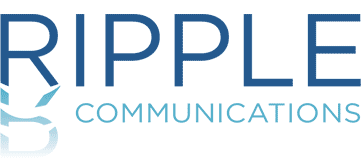
You’ve heard the saying “You are what you eat.” And generally that seems to make sense. If you consistently indulge in McDonalds and Dunkin Donuts, that will eventually have some health consequences. Same seems to be true with our media habits – we are what we watch, listen to and read.
These days we live in an influence society. Every waking moment of every day, all the communication we see is attempting to influence us.
Hundreds of times a day, what seems like constantly, we are bombarded with messages asking us to buy, think, stand up, act, give, speak up, quiet down, wear, record, post, like, share, tweet, retweet! AGGGHHH! It’s exhausting. And these messages find us on every possible platform – TV, Radio, print, on Facebook, Twitter, LinkedIn, Instagram, SnapChat, Tik Tok, imbedded in online news sites, online shopping, in the games we play, in email, while we drive, take a scooter, walk or fly… Everywhere. Constantly.
Everything is persuasion these days – consumerism, politics, education, heck, even the weather. And everyone is an expert (social media ensures this). Everyone wants to convince the world to listen to them, think like them, or purchase like them. There are people now who are known as “web influencers.” These are the “Emilys in Paris” who are able to attract huge followings on social media platforms and therefore “influence” people’s behavior by encouraging them to buy certain products or services.
I’m probably not shedding light on anything that you don’t already know. But I am pointing this out because we have become so used to this constant barrage of influence that we are sometimes numb to the effect it is having on us. It’s worth taking stock of what sources and influences you allow to command your attention. It’s also worth considering how you might be participating (sometimes unwittingly) in contributing to the attempt to influence others.
These various means of influence are becoming super sophisticated – and will get still more sophisticated in time. Most of us are aware of how our online habits become a predictor of the content we see – as an example if you happen to be shopping for sneakers on Amazon the next time you hit an online news site, you will get adds for Nike shoes. Google, Amazon, Facebook, Apple and other tech giants are tracking our online habits (which we allow them to do unless we specifically tell them they can’t). This allows them to “customize” content for us and push things to us that they think we want to see. They’re doing us a favor, right?! It’s so efficient and handy. Right.
While our shopping habits may seem fairly benign, taken to extremes the new and constant means of online influence can be extremely dangerous. And there is a fine line between “influence” and “manipulate.” We know that America’s foreign adversaries are manipulating or creating fake content on social media hoping users will share it without verifying its accuracy, in order to stoke political division and undermine our democracy. Just last week the Director of National Intelligence put out this report on efforts by foreign governments in Russia, Iran, Lebanese Hizballah, Cuba and Venezuela to influence our 2020 Presidential election. Specifically, about Russia the report states, “We assess that Russian President Putin authorized, and a range of Russian government organizations conducted, influence operations aimed at denigrating President Biden’s candidacy and the Democratic Party, supporting former President Trump, undermining public confidence in the electoral process, and exacerbating sociopolitical divisions in the U.S.”
Certainly, all of these foreign actors have an interest, and even a stake in, who wins the US Presidency. But why should you care? So Putin seems to need a hobby and is meddling in U.S. affairs – nothing new, right? Not a big deal in your day-to-day – you have enough on your plate with home schooling and finding a vaccine for your mom.
But here’s the thing – it’s possible Putin’s antics showed up in your Facebook feed and you didn’t even know it. Last year, Senator Ted Cruz and other high profile conservatives were duped into widely sharing on social media a story that was fabricated by Russian trolls and then pushed by a sophisticated network of Russian bots (story here). In 2017 it was reported that over 3,000 global news outlets “inadvertently published articles containing embedded tweets by the confirmed Kremlin-linked troll accounts in over 11,000 news articles in the run-up to the 2016 election.”
This of course goes back to our discussions about trust and the media. It’s super hard to know what’s real and authentic these days. Because everything has an angle. Only news stories about natural disasters or breaking events get covered without influence. Everything else – all other “news” – is being shaped by some interest. There are “brands” to protect and opinions to shape. Someone is deciding what you should see and hear, in order to influence what you do and think. That’s why social media initially became so popular — because it actually seemed more authentic than traditional media. But that is no longer true. The forces of “influence” have weaponized the social media platforms in new and perverse ways.
So it’s on us to try to be smart about our media “diet.” Is our diet balanced? Do we know what or who is “behind” the stories we get fed? You are what’s in your “feed” – so to speak. I’ll talk about this more in future posts – what constitutes a “balanced” media diet. But I’d also love to hear from you about this. How do you try to make sure you are getting different nutrients to feed your mind? Do you try new media foods? Maybe check in on something you suspect you might disagree with just to see what they are saying? Do you seek out meals that give you both the stuff you love and some stuff you may not like but know is good for you? Do you “fast” from time to time, to take a break and cleanse? All of these things are probably good ideas. I am working hard to look with fresh eyes at the ways that I am being softly influenced every day, by the news I consume, the websites I visit and the platforms I choose to participate in. Would love to hear they ways you do the same.
